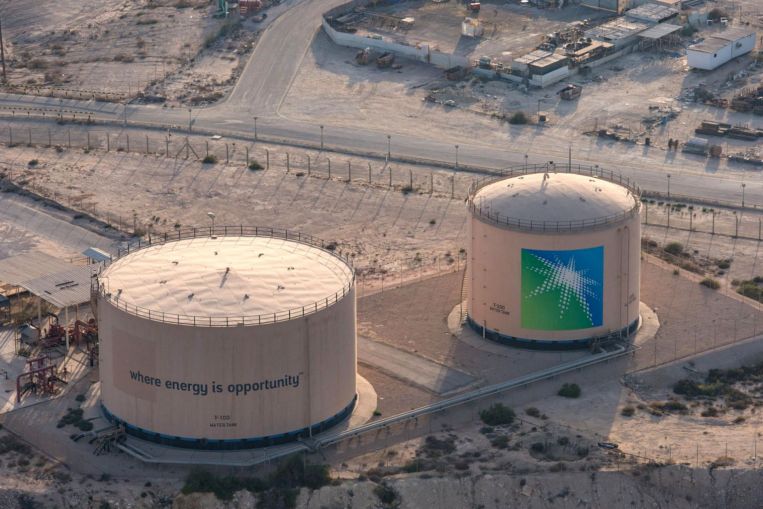RIYADH (BLOOMBERG) – Saudi Aramco said oil-output capacity across the world is dropping quickly and companies need to invest more in production.
It’s a “huge concern,” chief executive officer Amin Nasser said in an interview. “The spare capacity is shrinking.”
His comments come with crude prices having soared 70 per cent this year to around US$85 a barrel. Many major consumers, including the United States, Japan and India, have called on producers to pump more.
The supply deficit in oil markets could worsen in 2022 if the coronavirus pandemic eases and more people fly, he said.
Declining Rapidly
“If there’s aviation pick up next year, that spare of capacity will be depleted,” he said. “It’s now getting to a situation where there’s limited supply – whatever is left that’s spare is declining rapidly.”
Several oil and gas traders have criticised governments and climate activists for calling on companies to stop investing in fossil fuels, saying that will cause shortages of energy in the coming decade.
Aramco, the world’s biggest oil company, is investing billions of dollars to raise its daily capacity to 13 million barrels from 12 million. It expects to complete the project by 2027.
Still, Mr Nasser’s forecasts for next year are at odds with those of some Wall Street banks and Opec+ members. JPMorgan Chase & Co has said oil markets will shift to a supply surplus of 1 million barrels by March from a deficit of around 1.5 million barrels now.
Saudi Arabia’s energy minister told Bloomberg on Saturday there could be a “huge uplift” in crude inventories in 2022.
“We still have Covid,” Prince Abdulaziz bin Salman said, justifying Opec+’s refusel to ease deep supply cuts it began last year any faster. “We still have jet fuel limited in terms of growth. If you do more now, you’re accelerating the problem.”
The Organization of Petroleum Exporting Countries and its partners are increasing daily output by 400,000 barrels each month. The 23-nation group, led by Saudi Arabia and Russia, next meets on Nov 4 to decide whether to change strategy.













































